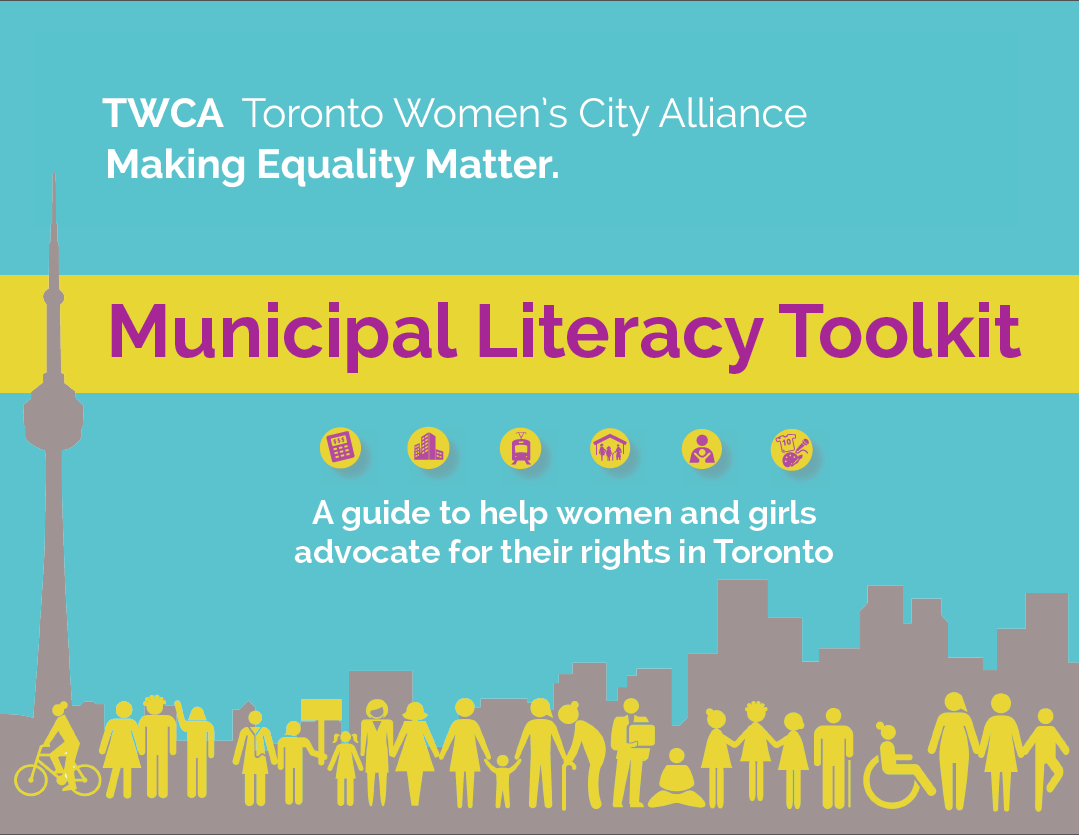January 20, 2014
The Chair
Community Development and Recreation Committee
10th floor, West Tower, City Hall
100 Queen Street West
Toronto, ON M5H 2N2
Dear Councillor,
I am writing on behalf of Toronto Women’s City Alliance (TWCA) with regard to the Committee’s consideration of CD26.2 Toronto Youth Equity Strategy. Toronto Women’s City Alliance shares the goal of municipal policy that is equitable and serves the needs of all youth in Toronto, particularly those who are at a greater risk of involvement in violence and crime. Initiatives to improve the design of policy in order to better serve youth, improved co-ordination and service delivery, and an expansion of services are all welcome policy developments.
Toronto Women’s City Alliance looks forward to the implementation of this program over the coming months. However, an understanding and application of gender-sensitive planning must be explicitly outlined as the various action items are specifically designed and meaningfully put into practice by the City. We note that the Strategy makes reference to the “complex mix of conditions” that leads to vulnerability, including “poverty, racism, community design, issues in the education system, family issues, health, lack of a youth voice, lack of economic opportunity for youth, and issues in the justice system.” Yet, these conditions can all be experienced differently by female and male youth, and those who may identify as LGBTQ. While the definition of vulnerability does not refer to a characteristic or feature of an individual, it is important to understand how service gaps, contexts and situations can all change depending on the gender of the relevant individual or group.
One example where this is immediately visible, and where gender disaggregated data is very useful, is in the aim of the Strategy itself— to “support youth (aged 13-29) who are most vulnerable to involvement in serious violence and crime.” If “involvement” means both committing and being subject to violence and crime, then any policy action must take into consideration the gender of the relevant youth. Female youth, for example, are more vulnerable to specific types of crime. Policy to prevent on the one hand, and help youth on the other hand, must reflect this.
Toronto Women’s City Alliance urges the Committee and the Social Development, Finance & Administration Department to employ a gender-sensitive lens in its consultation, research methodology and policy design, in order to arrive at a truly equitable strategy for all of Toronto’s youth.





